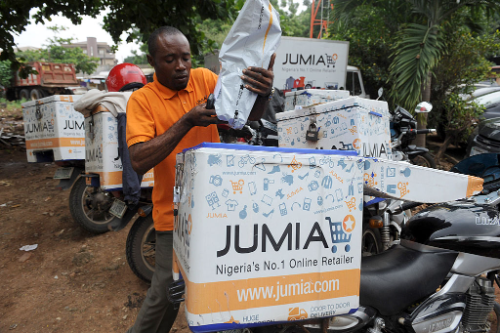Jumia Opens Logistics Network to Third-Party Sellers to Boost Revenue

TLDR
- E-commerce platform Jumia is now offering its logistics network to third-party businesses, including informal social media merchants
- The new service, Jumia Delivery, allows external sellers to ship parcels through Jumia’s logistics infrastructure, including 494 pickup stations across Nigeria
- The rollout follows a pilot in Côte d’Ivoire and will soon expand to Kenya, Ghana, and Senegal, subject to regulatory approvals
E-commerce platform Jumia is now offering its logistics network to third-party businesses, including informal social media merchants, marking a shift from competition to collaboration as it pursues profitability by 2027.
The new service, Jumia Delivery, allows external sellers to ship parcels through Jumia’s logistics infrastructure, including 494 pickup stations across Nigeria. The rollout follows a pilot in Côte d’Ivoire and will soon expand to Kenya, Ghana, and Senegal, subject to regulatory approvals.
“This pool of merchants is an opportunity,” CEO Francis Dufay said during Jumia’s May 8 earnings call. “We’re working to onboard them to our marketplace and generate profit from delivery services.”
Jumia is now competing directly with logistics firms like GIG, Sendbox, Uber, and Bolt. By monetising its delivery network, Jumia aims to drive scale and reduce last-mile costs, which totaled $9.4 million in Q1 2025. The company has already lowered costs through staff cuts, contract renegotiations, and operational efficiencies.
Daba is Africa's leading investment platform for private and public markets. Download here
Key Takeaways
Jumia’s pivot to logistics services reflects a broader trend: tech platforms repurposing internal infrastructure to serve informal and social commerce sellers. By leveraging its logistics backbone, Jumia aims to extract value beyond e-commerce orders and optimise underutilised assets like delivery routes and warehouses. Nigeria's social commerce market is large and fragmented, dominated by independent traders using WhatsApp and Instagram. These sellers often rely on informal delivery riders or third-party logistics firms. By offering a branded, nationwide delivery solution, Jumia hopes to win over this segment with reliability and reach. But the competition is strong. From GIG and DHL to Uber Eats and independent couriers, delivery options are abundant and often cheaper. Jumia’s challenge will be pricing and onboarding in a way that offers clear value while maintaining unit economics. If successful, the strategy could drive volume, improve margins, and turn logistics into a standalone revenue stream—something Jumia needs as it pushes for long-term profitability in a capital-constrained environment.

Next Frontier
Stay up to date on major news and events in African markets. Delivered weekly.
Pulse54
UDeep-dives into what’s old and new in Africa’s investment landscape. Delivered twice monthly.
Events
Sign up to stay informed about our regular webinars, product launches, and exhibitions.




